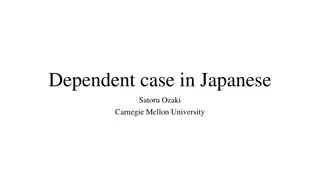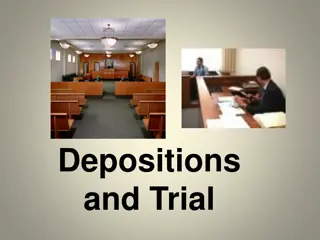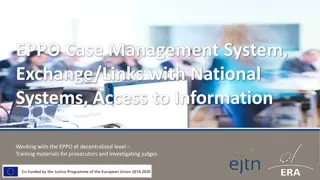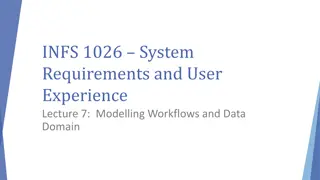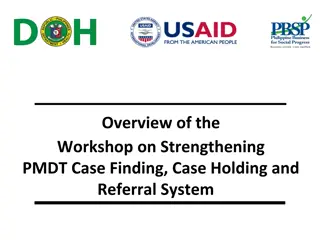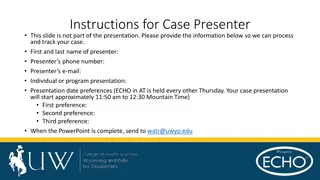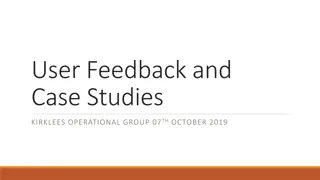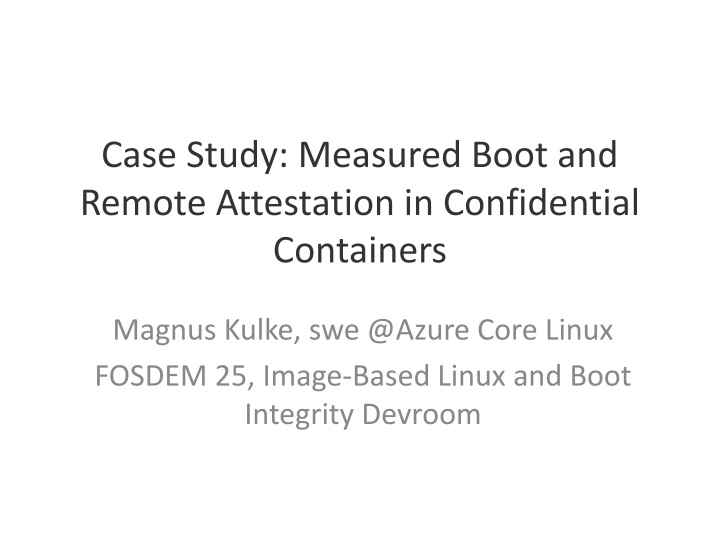
Measured Boot and Remote Attestation in Confidential Containers
Explore how Confidential Containers introduce Confidential Computing into the container ecosystem with features like Measured Boot, Remote Attestation, and the role of components like Kata-Agent and Systemd in managing container security and integrity.
Uploaded on | 1 Views
Download Presentation

Please find below an Image/Link to download the presentation.
The content on the website is provided AS IS for your information and personal use only. It may not be sold, licensed, or shared on other websites without obtaining consent from the author. If you encounter any issues during the download, it is possible that the publisher has removed the file from their server.
You are allowed to download the files provided on this website for personal or commercial use, subject to the condition that they are used lawfully. All files are the property of their respective owners.
The content on the website is provided AS IS for your information and personal use only. It may not be sold, licensed, or shared on other websites without obtaining consent from the author.
E N D
Presentation Transcript
Case Study: Measured Boot and Remote Attestation in Confidential Containers Magnus Kulke, swe @Azure Core Linux FOSDEM 25, Image-Based Linux and Boot Integrity Devroom
Containers? Pods? Boot integrity? Confidential Containers (CoCo) is an effort to introduce Confidential Computing (CC) into the container ecosystem. CC today is mostly built on top of Virtualization boundaries K8S Pods: collocated processes in a sandbox, with shared namespaces & resources CoCo wraps Pods into VMs
Typical container launch K8s node K8s RPC K8s API Server Kubelet CRI Calls K8s pod spec Containerd OCI Runtime Calls Sandbox process Runc process
Confidential container launch K8s node K8s RPC K8s API Server Kubelet CRI Calls K8s pod spec OCI Runtime Calls Containerd Kata shim Confidential VM Attestation Service Kata RPC Sandbox Kata Agent process Key Server Guest Comp.
Confidential VM & Measured Boot Minimal Linux system for utility VM Hosting static components to manage container sandbox and facilitate attestation Kata-Agent (container runtime) CoCo Guest Components CC mandates integrity Trusting the Sandbox implies trust in the Guest OS All OS (+ FW) components need to be measured
Options Package FW + Kernel + Kata-Agent as pid1 in initrd (w/o rootfs) Charming b/c simple. Measurements can be precalculated easily Problem: Attestation ceremonies are handled in discrete processes (3) Communicating via ttRPC Processes need to be orchestrated, supervised Kata-Agent s role is diluted with pid1 tasks
Use Systemd to manage components Enables some use cases Apply per-vm configuration prior to kata-agent Simplify agent code Leverage Systemd s measured boot facilities Just got merged
systemd/mkosi Make OS Image (?) Declarative Rootless (runs in docker) Supports many distributions (fedora, debian, arch variants) For multiple architectures
mkosi is fast! Shortens debug cycles
dm-verity setup is trivial PodVM rootfs is immutable
Detour: CVMs and vTPMs Rich(er) userland/kernel support for TPMs Paravisors / SVSMs Application in early boot Use privilege primitives to provide vTPM in CVM Isolated from Host + Guest OS, linked to HW Root-of-Trust Host VM VMPL 0 vTPM VMPL > 0 Guest OS
Using vTPM for Measured Boot Linux TPM PCR Registry | UAPI Group Specifications (pretty crowsed Static OS in PCR11 (UKI) Kernel, initrd, cmdline (verity root-hash) Dynamic CoCo configuration in PCR8 Claimed by grub (which we don t use) Attach vTPM quote to TEE evidence )
Optimize launch latency VMs should start doing container work ASAP systemd-analyze {plot,criticial-chain} are incredibly helpful
WIP: Encrypted workspace Some container image are large (CUDA) HD Storage is untrusted per-se Tmpfs-backed image + runtime storage is costly Option: use encrypted scratch space Add auto-growing partition Encrypt with random key Add repart + crypttab cfg
Future ideas Leverage Sysext for more opionionated Base OS requirements: Plugin in CoCo sysext w/ kata + attestation tools Have predictable (composite) measurement of base + CoCo bins
Future ideas II Support non-TPM TEE RoT HW in systemd tooling Like libtss for SEV-SNP, TDX, Some UAPI standardization ongoing (configfs) Up now: Confidential GPUs Up next: more attestable devices TEE Device Interface (TDI)
Summing up Using tools from systemd s ecosystem CoCo can quickly build and iterate on an immutuble utility VM. for hosting containers We can leverage Measured Boot facilities where feasible Good template for similar requirements
References Kata Containers - Open Source Container Runtime Software | Kata Containers Confidential Containers systemd/mkosi: OpenHCL: the new, open source paravisor COCONUT-SVSM Intel WP: Device Attestation Model in Confidential Computing Build Bespoke OS Images

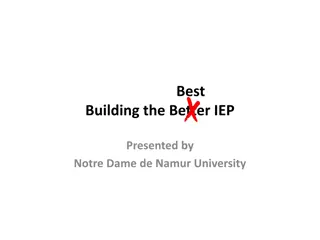
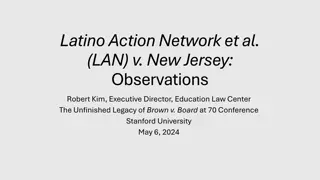
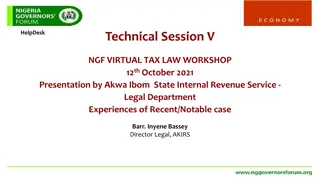
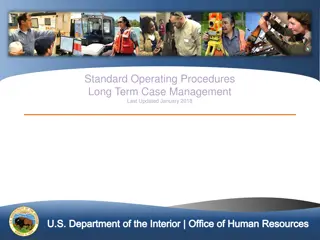


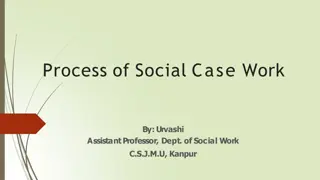
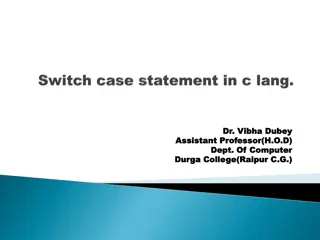
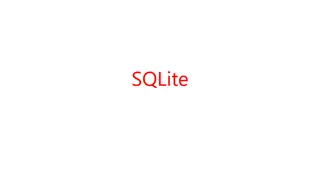

![Comprehensive Case Study on [Insert Case Title Here]](/thumb/159705/comprehensive-case-study-on-insert-case-title-here.jpg)
